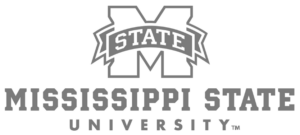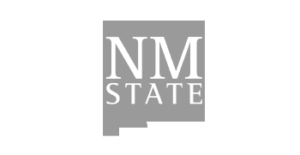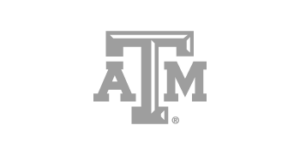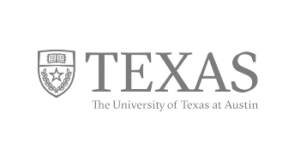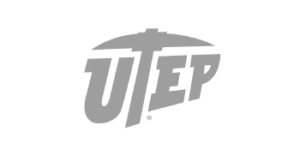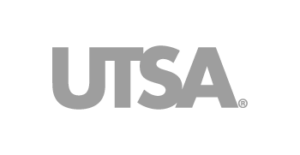National Science Foundation
Press Release 11-214
Public-private innovation awards granted to 21 teams from around the country
The National Science Foundation (NSF) has selected 21 teams for the inaugural class of NSF Innovation Corps (I-Corps) awards.
Spanning a broad range of target products, geographic locales and research fields, the teams will receive guidance from private- and public-sector experts, participate in a specially designed training curriculum, and receive $50,000 to begin assessing the commercial readiness of their technology concepts.
“I-Corps has generated tremendous excitement,” says I-Corps program officer Errol Arkilic. “Our first round of awards emerged from a wide array of fields and strong fundamental research efforts. All show promise as potential innovations that could yield additional direct benefits to society.”
The award process was intense, yet swift, with less than 30 days passing between the acceptance of the proposals and the issuing of each award by NSF’s Division of Grants and Agreements.
In total, the awards were representative of six NSF directorates: Engineering; Computer and Information Science and Engineering; Biology; Mathematics and Physical Sciences; Social, Behavioral and Economic Sciences; and Education and Human Resources.
For awardees, the first in-depth phase of the Innovation Corps experience begins on Oct. 10, 2011, when the participants arrive at Stanford University for the NSF I-Corps curriculum kickoff.
The I-Corps program selects up to 25 teams on a quarterly basis to assess the commercial viability of their previously-supported basic research.
For more on the Innovation Corps, see the NSF Special Report outlining the program. The program began accepting inquiries for the next round of proposals and awards on October 1.
Teams receiving I-Corps awards:
1156513 I-Corps: Photocatalysts for water remediation
Principal Investigator: Pelagia Gouma (pgouma@notes.cc.sunysb.edu); SUNY at Stony Brook, Stony Brook, N.Y.
1157409 I-Corps: IDecideFast – A web-based application for effective decision making for the layperson
Principal Investigator: Ali Abbas (aliabbas@uiuc.edu); University of Illinois at Urbana-Champaign, Champaign, Ill.
1157515 I-Corps: Silicon Terahertz Electronics
Principal Investigator: Michael Shur (shurm@rpi.edu); Rensselaer Polytechnic Institute, Troy, N.Y.
1157650 I-Corps: Naked eyes-based standoff detection of explosives using novel signal-amplifying nanocomposite and hand-held UV light
Principal Investigator: Yu Lei (ylei@engr.uconn.edu); University of Connecticut, Storrs, Conn.
1157852 I-Corps: Establishing an innovation ecosystem for technology transition of MEMS-based drug infusion pumps
Principal Investigator: Ellis Meng (ellismen@usc.edu); University of Southern California, Los Angeles, Calif.
1157881 I-Corps: Replication of Laser-Generated Surface Textures for Anti-Icing and Sun-Light-Trapping Applications
Principal Investigator: Mool Gupta (mg9re@virginia.edu); University of Virginia, Charlottesville, Va.
1157882 I-Corps: Concentric Technology
Principal Investigator: Walter Besio (besio@ele.uri.edu); University of Rhode Island, Kingston, R.I.
1157898 I-Corps: Hand-Held Tonometer for Transpalpebral Intraocular Pressure Measurement
Principal Investigator: Eniko Enikov (enikov@engr.arizona.edu); University of Arizona, Tucson, Ariz.
1157904 I-Corps: Flexible, Low Cost Cooling Technology for LED Lighting
Principal Investigator: Satish Kandlikar (sgkeme@rit.edu); Rochester Institute of Technology, Rochester, N.Y.
1157916 I-Corps: Radiotracer Synthesis Commercialization
Principal Investigator: Stephen DiMagno (sdimagno1@unl.edu); University of Nebraska-Lincoln, Lincoln, Neb.
1157919 I-Corps: Accelerated Innovation and Technology Transition in Semiconductor-Based Hydrogen and Hydrocarbon Sensors
Principal Investigator: Lisa Porter (lporter@andrew.cmu.edu); Carnegie-Mellon University, Pittsburgh, Pa.
1158625 I-Corps: Mobile Life Guard Principal Investigator: Ram Dantu (rdantu@unt.edu); University of North Texas, Denton, Texas
1158721 I-Corps: Pilot Production Of Large Area Uniform Single-Crystal Graphene Films
Principal Investigator: Alan Johnson (johnson@dept.physics.upenn.edu); University of Pennsylvania, Philadelphia, Pa.
1158726 I-Corps: Technological Assessment of Artificial Membrane-based Ion Channel Screening
Principal Investigator: Jacob Schmidt (schmidt@seas.ucla.edu); University of California-Los Angeles, Los Angeles, Calif.
1158737 I-Corps: Commercialization Feasibility Research and Demonstration Preparation for Privacy-Preserving Location Based Services
Principal Investigator: Nan Zhang (nzhang10@gwu.edu); George Washington University, Washington, D.C.
1158744 I-Corps: MySkinTone: A breakthrough technology and product for skin melanin evaluation
Principal Investigator: Michael Silevitch (msilevit@censsis.neu.edu); Northeastern University, Boston, Mass.
1158759 I-Corps: Mobidemics: Using Mobile Gaming for Healthcare
Principal Investigator: Nilanjan Banerjee (nilanb@uark.edu); University of Arkansas, Fayetteville, Ark.
1158766 I-Corps: SmartMenu
Principal Investigator: Elizabeth Mynatt (mynatt@cc.gatech.edu); Georgia Tech Research Corporation, Atlanta, Ga.
1158781 I-Corps: Portable sensors using the widely available personal glucose monitor
Principal Investigator: Yi Lu (yi-lu@illinois.edu); University of Illinois at Urbana-Champaign, Champaign, Ill.
1158807 I-Corps: SwiftVax – A Green Manufacturing Platform for Faster, Cheaper, and Scalable Vaccine Manufacturing
Principal Investigator: Karen McDonald (kamcdonald@ucdavis.edu); University of California-Davis, Davis, Calif.
1158809 I-Corps: Commercialization of an Engineered Pyrolysis Blanket for the Economic Conversion of Forestry Residues to Soil Amendments and Energy Products
Principal Investigator: Daniel Schwartz (dts@u.washington.edu); University of Washington, Seattle, Wash.
-NSF-
![]()
Media Contacts
Joshua A. Chamot, NSF, (703) 292-7730, jchamot@nsf.gov
Program Contacts
Errol B. Arkilic, NSF, (703) 292-8095, earkilic@nsf.gov
![]()
The National Science Foundation (NSF) is an independent federal agency that supports fundamental research and education across all fields of science and engineering. In fiscal year (FY) 2016, its budget is $7.5 billion. NSF funds reach all 50 states through grants to nearly 2,000 colleges, universities and other institutions. Each year, NSF receives more than 48,000 competitive proposals for funding and makes about 12,000 new funding awards. NSF also awards about $626 million in professional and service contracts yearly.
Useful NSF Web Sites:
NSF Home Page: http://www.nsf.gov
NSF News: http://www.nsf.gov/news/
For the News Media: http://www.nsf.gov/news/newsroom.jsp
Science and Engineering Statistics: http://www.nsf.gov/statistics/
Awards Searches: http://www.nsf.gov/awardsearch/

